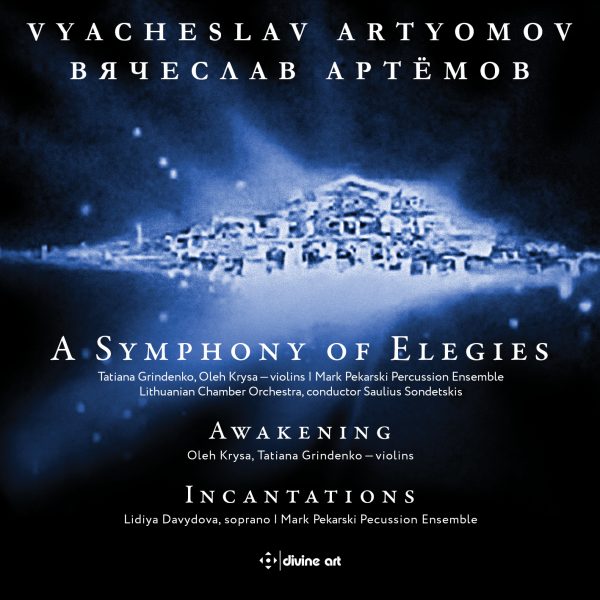Musical Opinion
For the past half-century, Vyacheslav Artyomov (b1940) has proved himself again and again to be one of the most individual and distinctive composers not just in the music of his native Russia but in Western Classical music as a whole. His musical style and expressive purpose position him somewhere between the so-called holy minimalism of Arvo Pärt, the Christian-rooted gravitas of Sofia Gubaidulina, and the supercharged intensity of Alfred Schnittke. Yet Artyomov never sounds like any of these; he is his own man, a truly original voice, all the more shockingly so in that he emerged as a creative force in the repressive conditions of the Soviet Union under Brezhnev.
That his output is not as well-known as it should be is down to a number of factors: paucity of performances outside of Russia—his impact concentrated on early recordings by Melodiya, of which the three works here, set down in the 1980s, are reissues—the success of composers like Pärt whose music is superficially more appealing and more easily assimilated, and the challenging nature of Artyomov’s scores which are the polar opposites of Pärt’s, outwardly straightforward but far more complex and challenging. As Robert Matthew-Walker rightly states of A Symphony of Elegies, Artyomov’s first symphony composed during a two-month sojourn in Armenia, “one must abandon most preconceptions regarding Western symphonism”, but he might as justly have said ‘of Western music in general’, so unorthodox are the internal processes in the work; just listen to the subtle and undemonstrative percussion writing, ideally judged.
That might also be said of Gorecki’s Symphony of Sorrowful Songs, another large-scale work in slow tempi. A Symphony of Elegies, however, is a much stronger work than Gorecki’s over-hyped work. Artyomov’s harmonic and rhythmic patterns, and its underlying pulse, while almost glacially slow at times are more varied and never static. Rather, the music seems at some stratospheric height, its invention stretched out over an entirely different timeframe, or timeframe of reference. Its three movements are captivating, mesmerising, utterly compelling.
The couplings are scarcely less so. The violin duo Awakening was written the year following the symphony and for the same violinists, Oleh Krysa and Tatiana Grindenko, who played the premiere of it and the symphony and duly recorded both, reissued here. The song cycle Incantations (1979-81) is the same work as that previously recorded as Invocations (as on the Olympia reissue); the booklet note sadly gives no clue as to the reason for the retitling. The performances still sound terrific, the recordings clear and bright, brilliantly re-engineered. Superb.
@divineartrecordingsgroup
A First Inversion Company
Registered Office:
176-178 Pontefract Road, Cudworth, Barnsley S72 8BE
+44 1226 596703
Fort Worth, TX 76110
+1.682.233.4978












